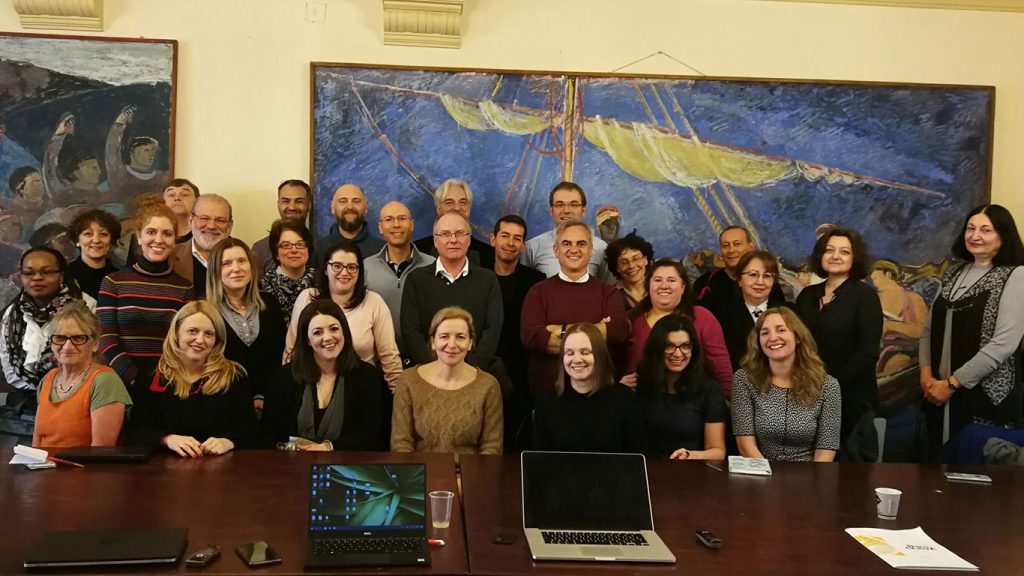December 3rd, 4th & 5th
Phenotyping Training School

Macedonian Academy of Arts, Boulevard Krste Petkov Misirkov, Skopje 1000, Macedonia (FYROM)
This training school will cover clinical care of patients with Copy Number Variation (CNV; small chromosomal deletions or duplications) causing neurodevelopmental disorder as well as the development of research studies of these patients. Sessions will focus on the clinical implications of carrying these CNVs, counselling of patients and their families, recommendations for genetic testing and clinical care, the neurodevelopmental and wider phenotype of child CNV carriers over time, and the psychiatric profiles of child and adult carriers. Furthermore, there will be sessions on how to develop research studies of these CNV carriers, including neuro-imaging and EEG studies.
Structure of programme:
Session 1: Introduction and clinical implications
- Introduction to CNVs
- CNV interpretation
- Phenotypic consequences
- Penetrance
- Recommendations for genetic testing, when, which tests
- Recommendations for clinical care of carriers
Session 2: Counselling of patients and families
- The role of genetic counsellors in clinical practice
- Principles of genetic counselling in relation to testing patients with NDDs
- How genetic counsellors support families before and after diagnosis
- Principles of consent, capacity and confidentiality in clinical genetics practice
- Distinguishing between research and clinical care in genetics patients
- Ethical dilemmas concerning return of looked-for additional genetic findings
- Disclosing variants of uncertain significance
Session 3: Developmental characteristics of child carriers
- Physical health phenotype
- Developmental phenotype
- Psychological phenotype
- The phenomenological presentation: importance of considering all aspects of presentation
- Co-occurrence of psychiatric disorder with motor coordination and sleep problems, seizures and cognitive impairment
Session 4: Tour of Centre for Genetics genotyping facilities
Session 5: Psychiatric profile of carriers
- Psychiatric diagnostic systems
- Psychiatric diagnosis of child carriers
- Psychiatric diagnosis of adult carriers
- Intervention and treatment
- The transition from adolescence to adulthood
- Psychosocial implications of carrying a CNV on the patient and their environment
Session 6: Presentation of complicated case studies by participants and discussion by trainers and trainees
Session 7: Developing research studies of CNV carriers
- A story of developing a research programme of CNV carriers
- Ethics applications
- Conducting a semi-structured psychiatric interview with patients or their carers
- Neurocognitive testing
- Longitudinal follow-up
- Database and statistical analysis
Session 8: Neuro-imaging studies
- Introduction to methodology
- Findings in CNV carriers
Session 9: Embedding research studies of CNV carriers in the larger social and clinical setting
- Contacts with patients and their families
- Contacts with health care organisations, clinics and clinicians
- Contacts with patient support organisations
Session 10: Discussion, summary and completion of evaluation form
Format:
- Presentations
- Panel/ question and answer sessions with trainers and group discussions about local practices
- Slides made available through MINDDS website
Registration:
- Registration is now closed
Please contact Hayley Moss mosshm@cardiff.ac.uk if you have any questions.
